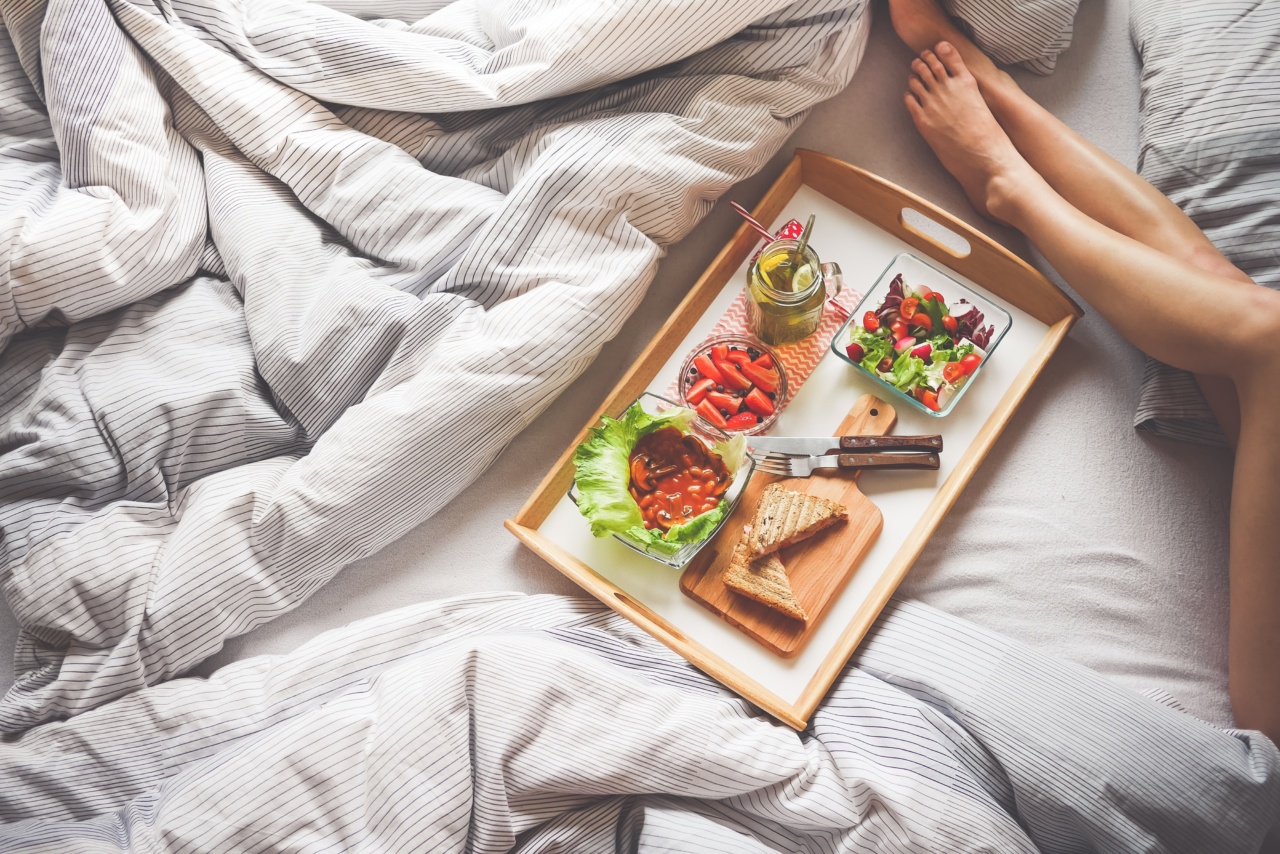Getting a good night’s sleep is essential for overall well-being and optimal functioning during the day. However, many people struggle with falling asleep or staying asleep, which can be attributed to various factors, including diet.
The foods we consume before bed can have a significant impact on our sleep quality and can either promote or disrupt sleep. To ensure a restful night of sleep, here’s a list of foods to avoid before bedtime:.
1. Caffeinated Beverages
Caffeine is a stimulant that can interfere with your sleep pattern, especially if consumed close to bedtime. It stimulates the central nervous system, making it difficult for your body to relax and fall asleep.
Common sources of caffeine include coffee, black tea, energy drinks, and even some soft drinks. Avoid consuming these beverages at least 4-6 hours before bed to allow enough time for the effects of caffeine to wear off.
2. Dark Chocolate
While rich in antioxidants and other beneficial compounds, dark chocolate also contains caffeine. The caffeine content can vary depending on the type and percentage of cocoa.
Opt for milk chocolate or non-caffeinated alternatives if you crave a sweet treat before bed.
3. Spicy Foods
Spicy foods, such as chili peppers or hot sauces, can cause heartburn or indigestion, which can disrupt sleep and make it uncomfortable to lie down.
These foods can increase your body temperature and stimulate your digestive system, making it harder to fall asleep peacefully. Avoid spicy foods for dinner or consume them earlier in the day to prevent any sleep disturbances.
4. Fatty and Greasy Foods
Foods high in fat and grease, such as fried foods or heavy meals, take longer to digest. This can lead to indigestion and discomfort, which can interfere with your ability to fall asleep and stay asleep.
Additionally, these foods can cause acid reflux, further exacerbating any sleep disruptions. Opt for lighter, well-balanced meals before bed to promote better sleep.
5. Alcohol
While alcohol may initially make you feel drowsy, it can disrupt your sleep later in the night. Alcohol affects the normal sleep pattern, leading to fragmented and less restful sleep.
Additionally, it can also cause frequent trips to the bathroom during the night, further interrupting your sleep. Limit your alcohol intake and avoid consuming it close to bedtime to ensure a more restorative and uninterrupted sleep.
6. Citrus Fruits and Juices
Citrus fruits, including oranges, grapefruits, and their juices, are known to be acidic. Consuming them before bed can cause heartburn or acid reflux, making it uncomfortable to lie down and fall asleep.
If you enjoy citrus fruits, try to consume them earlier in the day to avoid any potential sleep disruptions.
7. High Sugar Foods and Drinks
Foods high in sugar, such as cookies, cakes, or sugary cereals, can cause blood sugar spikes and crashes. These fluctuations can disrupt your sleep and lead to more frequent awakenings during the night.
Try to choose snacks with lower sugar content or opt for healthier alternatives like fruits or nuts if you need a bedtime snack.
8. Carbonated Drinks
Carbonated drinks like soda or sparkling water can lead to bloating, gas, and indigestion, making it uncomfortable to lie down and get a restful night’s sleep.
The carbonation in these drinks can also cause frequent burping, which may disrupt your sleep. It is advisable to avoid carbonated beverages at least a few hours before bed to prevent any discomfort during sleep.
9. Heavy Protein-rich Foods
Foods high in protein, such as red meat or heavy protein-rich meals, take longer to digest. This can lead to discomfort, bloating, and indigestion, making it harder to fall asleep and stay asleep.
Opt for lighter protein sources like lean chicken or fish, and avoid consuming heavy protein-rich foods too close to bedtime.
10. Excessive Fluid Intake
While it is essential to stay hydrated throughout the day, drinking excessive fluids before bed can lead to more frequent trips to the bathroom during the night. This can disrupt your sleep and make it difficult to fall back asleep once you wake up.
It is recommended to limit your fluid intake close to bedtime to minimize sleep disruptions.
Conclusion
Good sleep hygiene involves not only creating a comfortable sleep environment but also paying attention to what we consume before bed. By avoiding food and drinks that can disrupt sleep, we can optimize our chances of enjoying a restful night of sleep.
Remember to steer clear of caffeinated beverages, dark chocolate, spicy and fatty foods, alcohol, citrus fruits and juices, high sugar foods and drinks, carbonated drinks, heavy protein-rich foods, and excessive fluid intake close to bedtime. Instead, opt for lighter, well-balanced meals, and choose snacks that promote relaxation and comfort. By making these simple dietary changes, you can significantly improve your sleep quality and wake up feeling refreshed and rejuvenated each morning.






























